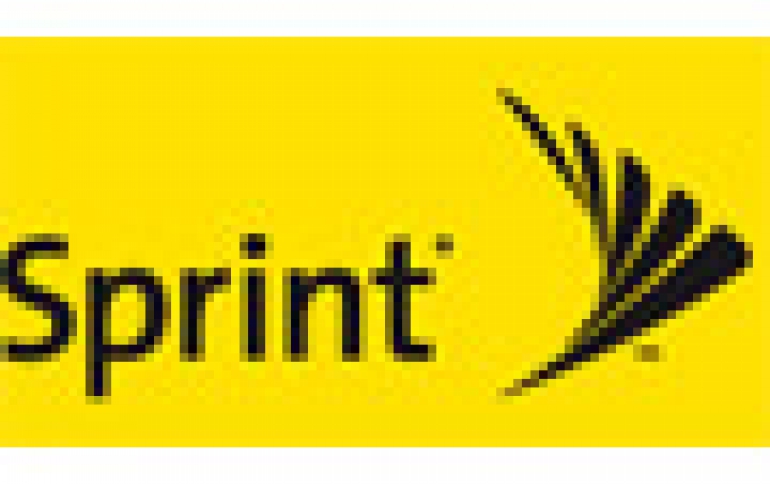
Sprint, Google Collaborate on WiMAX Mobile Internet Services
Google has made its biggest move yet on the U.S. mobile Web market by signing a deal with Sprint that positions the Internet company to
build services to run on Sprint's planned WiMAX high-speed wireless
network.
Mobile broadband pioneer Sprint is working with Google to bring WiMAX
mobile Internet customers search, interactive communications and
social networking tools though a new mobile portal. The collaboration
between Sprint and Google is expected to help spur new mobility and
location-assisted services.
Sprint is developing a nationwide advanced wireless broadband network that is designed to mobilize the Internet. The pact with Google is a milestone in Sprint?s mobile Internet strategy, and it builds upon current WiMAX ecosystem infrastructure and device agreements to establish an Internet destination for user-generated content and multimedia offerings.
"Google and Sprint will optimize the Internet experience for the digital lifestyle," said Barry West, president, 4G Mobile Broadband for Sprint. "This collaboration brings what will be the best mobile Internet network together with the leading Internet search company. It allows us to capitalize on the powerful mobility and Internet trends, and create wireless services and applications that take advantage of each company?s history of product development innovation."
Sprint network bandwidth, location detection and presence capabilities will be matched with Google?s popular communications suite ? Google Apps ? that combines the Gmail, Google Calendar and Google Talk services. Customers will be able to experience a new form of interactive communications, high speed Internet browsing, local and location-centric services, and multimedia services including music, video, TV and on-demand products.
Sprint will provide open standard APIs (application programming interfaces) to Sprint?s go-to-market partners and the Internet developer community to create customized products for browsable devices, facilitating the delivery of personalized and interactive services to consumer, business, public safety and government customers. These services will be available in a variety of WiMAX embedded devices, including connection cards, stand-alone modems, laptop computers and consumer electronic devices such as personal media players, mobile Internet devices, gaming devices and phones. Eventually, the WiMAX service will be available in vehicles for navigation information, news and entertainment.
Sprint is working with WiMAX ecosystem partners and others to incorporate WiMAX technology in a range of computing, portable multi-media, interactive and other consumer electronic devices. The company plans WiMAX test service in the Chicago, Baltimore and Washington DC areas by year-end 2007. Commercial service is expected to be available in a number of markets starting April 2008 and cover 100 million people by year-end 2008 in conjunction with a planned partnership with Clearwire.
The Sprint WiMAX mobile broadband network will use the company?s extensive 2.5GHz spectrum holdings.
Besides the deal with Sprint, Google is also lobbying the U.S. government to open up the wireless market and has expressed interest in bidding for airwaves at an upcoming government auction. It said it will spend a minimum of $4.6 billion if regulators push operators to open their networks.
Sprint is developing a nationwide advanced wireless broadband network that is designed to mobilize the Internet. The pact with Google is a milestone in Sprint?s mobile Internet strategy, and it builds upon current WiMAX ecosystem infrastructure and device agreements to establish an Internet destination for user-generated content and multimedia offerings.
"Google and Sprint will optimize the Internet experience for the digital lifestyle," said Barry West, president, 4G Mobile Broadband for Sprint. "This collaboration brings what will be the best mobile Internet network together with the leading Internet search company. It allows us to capitalize on the powerful mobility and Internet trends, and create wireless services and applications that take advantage of each company?s history of product development innovation."
Sprint network bandwidth, location detection and presence capabilities will be matched with Google?s popular communications suite ? Google Apps ? that combines the Gmail, Google Calendar and Google Talk services. Customers will be able to experience a new form of interactive communications, high speed Internet browsing, local and location-centric services, and multimedia services including music, video, TV and on-demand products.
Sprint will provide open standard APIs (application programming interfaces) to Sprint?s go-to-market partners and the Internet developer community to create customized products for browsable devices, facilitating the delivery of personalized and interactive services to consumer, business, public safety and government customers. These services will be available in a variety of WiMAX embedded devices, including connection cards, stand-alone modems, laptop computers and consumer electronic devices such as personal media players, mobile Internet devices, gaming devices and phones. Eventually, the WiMAX service will be available in vehicles for navigation information, news and entertainment.
Sprint is working with WiMAX ecosystem partners and others to incorporate WiMAX technology in a range of computing, portable multi-media, interactive and other consumer electronic devices. The company plans WiMAX test service in the Chicago, Baltimore and Washington DC areas by year-end 2007. Commercial service is expected to be available in a number of markets starting April 2008 and cover 100 million people by year-end 2008 in conjunction with a planned partnership with Clearwire.
The Sprint WiMAX mobile broadband network will use the company?s extensive 2.5GHz spectrum holdings.
Besides the deal with Sprint, Google is also lobbying the U.S. government to open up the wireless market and has expressed interest in bidding for airwaves at an upcoming government auction. It said it will spend a minimum of $4.6 billion if regulators push operators to open their networks.




















